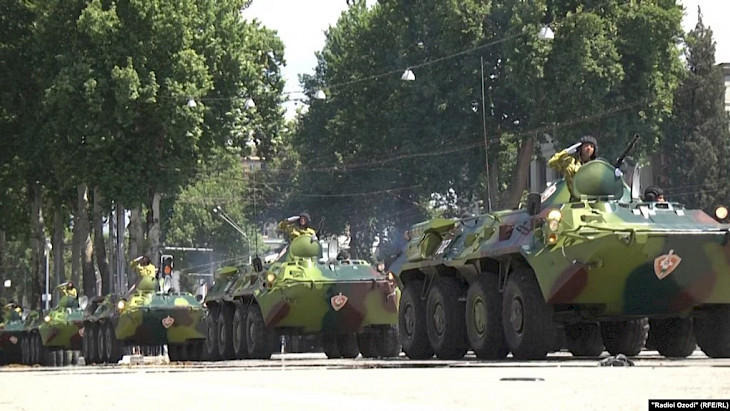The authorities of Tajikistan plan to allocate 4.7 billion somoni ($446 million) in the state budget for 2025 to fund defense, law enforcement agencies, and the judiciary. If approved, this amount will exceed the 2024 budget allocation for the same sectors by 972.4 million somoni ($92 million), reports Ozodi.org, the Tajik service of Radio Free Europe/Radio Liberty.
According to a document from Tajikistan's Ministry of Finance, in 2025, the country's spending on the military and law enforcement agencies will amount to 2.8% of the GDP.
In 2024, Tajikistan's spending on these sectors was 2.6% of GDP, or 3.7 billion somoni ($354 million).
The breakdown by agencies and types of law enforcement is not provided in the state budget, nor is other information regarding the military budget, as such details are classified under the country’s law "On State Secrets."
Meanwhile, reports of increased military budgets in Central Asian countries, including Tajikistan, were made by several international organizations and media earlier this year.
For instance, the Stockholm International Peace Research Institute (SIPRI) published a report in August of this year indicating that all CIS member states are increasing their military budgets. The report noted that Tajikistan, Kazakhstan, and Kyrgyzstan spent a combined total of $1.8 billion on the military sector in 2023. Uzbekistan and Turkmenistan did not publish their spending statistics.
The report's authors highlight that the leaders of these states link increased defense and security spending to factors such as border conflicts in Central Asia, the war in Ukraine, the situation in Nagorno-Karabakh, and instability in Afghanistan.
At the same time, not only wars and conflicts have driven the rise in military spending in the region, but also changes in the global geopolitical situation. Whereas Central Asia previously relied heavily on Russia for security matters, the number of partners contributing to the region’s security has now grown. These partners include Turkey, Iran, Saudi Arabia, the USA, Germany, France, China, and Belarus, which also supply the region with weapons and military equipment. However, according to experts, this does not necessarily stabilize the region in terms of defense and security.
CentralasianLIGHT.org
September 12, 2024

